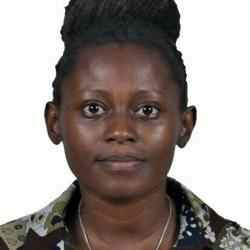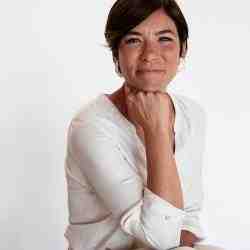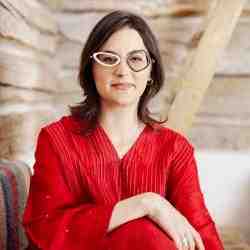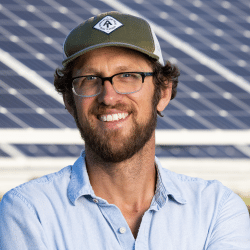前書き
Through her work with Forever Sabah, Cynthia is working to create collaborative spaces within conservation so that all actors and sectors are involved and able to voice their perspective utilizing a groundbreaking management and facilitation style. This is done to enable the end goal of creating an equitable, diversified, and circular economy in Sabah on the island of Borneo.
新しいアイデア
Cynthia is convinced that for transformation to happen in the space of conservation and sustainable development, there needs to be a presence of collaborative spaces that break down barriers between the government, private and citizen sector. Through her organisation, Forever Sabah, Cynthia is building a coalition of partners who recognise the need for development in Sabah to happen in a sustainable manner and these actors see that the solution lies in the establishment of an equitable, diversified and circular economy. Through a new form of management science that relies on the power of distributive leadership, Cynthia has created a process where people and organizations working in the conservation space can recognize their connections and importance to everything within a greater web of sustainability issues, giving a voice and agency to all.
Forever Sabah harnesses the power of facilitation and organisation, legal innovation, and innovative finance to build an ecology of partnerships - organised in a team of teams structure - to identify solutions for living land and sea ecosystems. In a larger sense, the coalition strengthens conservation capacity of the community in Sabah and effectively solves many long standing problems that the territory has faced due to its unique and diverse environment.
問題
The island of Borneo is home to one of the world’s oldest rainforests. The island also forms the western boundary of the Coral Triangle - the world’s most biodiverse marine area - making it home to over 600 species of corals and 3,000 species of fish. This propelled the government of Sabah to safeguard half of Sabah’s land as state-owned permanent forest estate back in the 1980s. Because of this, the Sabah of today, has forests that have less economic value to the private sector but are rich in biodiversity.
However, a polarised relationship between conservation and development still exists as stakeholders with competing interests of profit and conservation contend for the same pool of resources. Borneo has seen a rapid decrease and fragmentation of its land since the 1960s due to logging, conversion into oil palm plantations and mining. This rapid decrease of forest cover and fragmentation also point towards the threat that traditional communities of some 70 sub-ethnic groups - who live along Borneo’s rivers, some of the most remote forests on the island and the coast - face. If left to continue at this rate, Borneo may only retain about a third of its forest cover by 2020, concentrated mainly in the steep and inaccessible interior of the island.
Sabah is also home to unique and varied indigenous communities, who have had a longstanding yet turbulent relationship with the environment around them, given the heavy deforestation that has occurred in the last few decades caused by a boom in global demand for palm oil and rubber. This creates a complicated and intertwined set of issues and realities for those involved in the sustainable development of Sabah. The traditional approach to conservation is extremely hierarchical in nature and tends to exclude the voices of those who have coexisted with the land in question for centuries. Without the input of these people, impact and change will never reach its full potential, as they truly understand the issues on the ground better than anyone. A longstanding lack of coherence and viability in environmental legislation has for too long been the norm; Cynthia is working to change this.Through Forever Sabah, Cynthia has worked around long standing walls that have been built between key actors in all of these fields so that the diverse set of issues that arise in Sabah can be solved effectively and cohesively.
戦略
Cynthia recognises that the key lever that will help to pivot Sabah’s current development trajectory, is the establishment of an equitable, diversified and circular economy - where system-wide innovation allows for the maximum extraction of the potential of all resources.
Forever Sabah’s work on conservation and sustainable development is built around and with the ecosystem - living landscapes and seascapes- in mind. Its scope covers four focal areas - food and agriculture; renewable energy; water, waste and soil; tourism. In order to be able to constantly adapt to changing its response as new issues arise, the structure has been thought to be fluid and circular, relying on six key leverages activated as powerful tools regarding the context : legal innovation, finance, communications, facilitation, the Forever Sabah Sustainability Institute (focusing on research and implementation), and Governance.
Through Forever Sabah, Cynthia has created a method that helps key actors affected by an environmental issue to discover, recognize, and activate the connections and potential that can facilitate the successful implementation of efforts, policies, and initiatives. This has created a space for open exchange, where all stakeholders are empowered and heard. Once a need or concern has been established, Cynthia engages the players in a process that surfaces pre-existing biases and mindsets that would otherwise create friction and misunderstanding among them. This increased transparency allows for the surfacing of dynamics and potentials that are not immediately obvious and sets the ground for ground-up collaborations to happen.
This unique and forward thinking methodology is utilized to cover such a diversity of issues and interests that no one example could suffice to explain the gravity of the impact Cynthia has achieved. However, one example that illustrates the power of her process in a very high stakes setting is Forever Sabah’s work to rollout a sweeping sustainable palm oil initiative where the entire palm oil sector would go sustainable by 2025 (meaning 100% of palm oil produced, sourced or used on Sabah would be RSPO - Roundtable on Sustainable Palm Oil- certified). This is a global first, and is monumental in the context of Malaysia, where this certification has been highly controversial and looked upon with a negative attitude by many powerful actors.
Another example is the piloting of a Payment for Ecosystem Service (PES) approach to grow Sabah’s and Malaysia’s capacity and capability to management water catchments. In many rural environments, Sabah included, indigenous villages tend to live at the top of a particular water source, and as the water continues downstream the infrastructure surrounding it turns increasingly urban, until it reaches cities at the end. As the water continues downstream, its quality decreases significantly. With a PES system in place, a percentage of the utilities that urban communities living downstream pay for is passed along to the indigenous and rural communities at higher points in the water system in exchange for them maintaining and protecting the water supply. This hence simultaneously encourages ecological preservation while supporting the development of the indigenous villages living in rural environments.
The strength in Cynthia’s methodology is that is not just relevant in these types of international policy-level scenarios and issues. It can be used to facilitate all types of issues with any level of involvement, from international and national situations, as exampled with the RSPO certification and PES legislation, to situations involving individual communities and stakeholders on a much more localized level, such as her work with local fishermen to promote shark conservation in a very remote location. This highlights how Forever Sabah is structured to ensure that connections are built and maintained at a macro and micro level, and the interconnected and circular nature of Cynthia’s approach to sustainable development. It encompasses an entire system, utilizing a methodology that is applicable to each and every level, which are all considered equally important, in order to maximize impact.
人
Cynthia grew up in Sabah, in a family and societal era that was predominantly patriarchal. This environment shaped her as a person, helped her to find her voice and ignited within her a determination to confront a rigid system that was largely unbalanced.
At the age of 17, Cynthia left the shores of Sabah to further her studies in Switzerland and Holland. She later went on to start her career at a 5-star resort, De Archterste Hoef, in the Netherlands, which was also when she discovered her desire to build and create - formally setting her on her entrepreneurial journey, where she eventually birthed her own bed and breakfast establishment when she returned to Sabah at the age of 22.
It was also in her twenties that Cynthia’s entrepreneurial spirit continued to flourish as she dabbled with both for-profit and non-profit projects despite her being a part of a family that believed it to be inappropriate for women to be entrepreneurial.
Cynthia was exposed to the the facilitative framework in her thirties and her eyes were open to the power and creative potential that groups had - if they only knew how to surface the right dynamics. She then began applying the facilitative framework to the enterprises she was running, moving the organisational structures away from a hierarchical one to a circular one. Cynthia’s belief in the power and potential of facilitation drove her to pursue formal training in it in Taiwan and the United States - where she co-founded a non-profit organisation working with the US criminal justice system on community and peace-building facilitation.
When Cynthia eventually returned to Sabah in 2005, she founded Land Empowerment Animals People (LEAP) Spiral Berhad to facilitate projects, partnerships and exchanges that provoke ecologically sustainable coexistence. The founding of LEAP then laid the foundation for the eventual founding of Forever Sabah.
With Forever Sabah, Cynthia ambitions to push the trajectory of impact towards a time and place where paradigms on the relationship between conservation and sustainable development, as well as that of conservation and profit - are shifted - such that sharing, networking, collaboration and calibration are seen as the key levers that will bring about actionable and scalable solutions for the ecological sustainability of Sabah.
As a next step, Cynthia is looking to devise a ‘Forever Sabah Framework’ that can be taught to others who are interested in utilizing her non-hierarchical leadership methodology. This will be replicable across various organizations and contexts of work, so that it will make the broadest impact possible and touch as many people and issues as it can. Cynthia sees this framework as a ‘way of being,’ that can truly transform how problems are solved and impact is perpetuated in the future across a variety of fields.
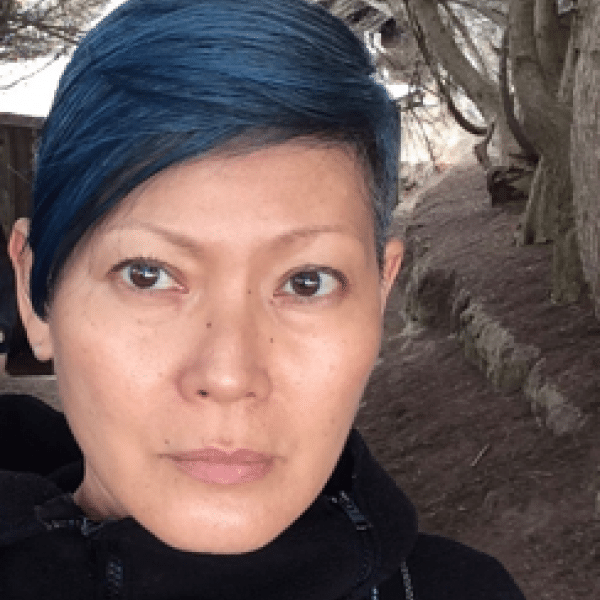
 Tile image
Tile image Tile image
Tile image